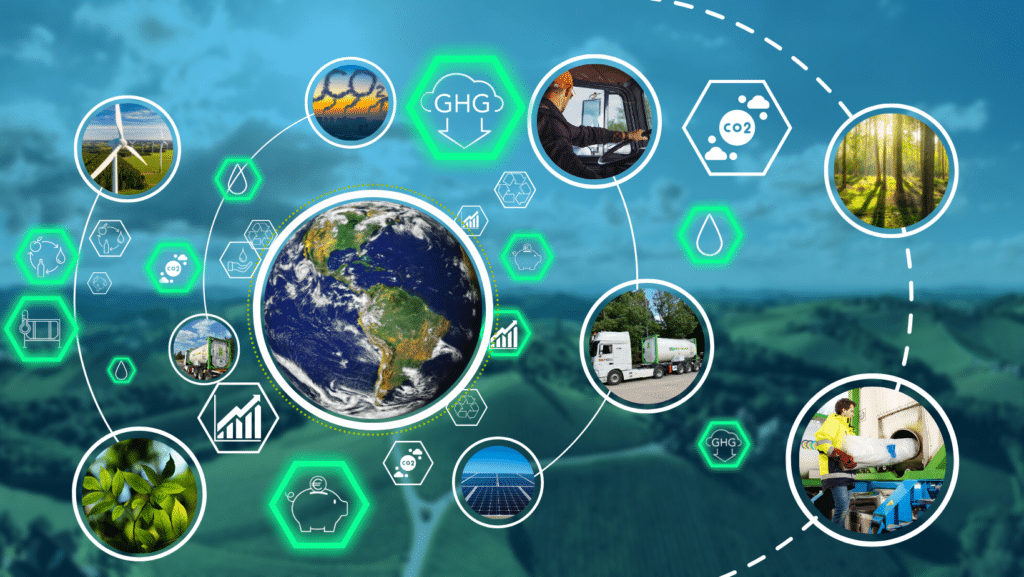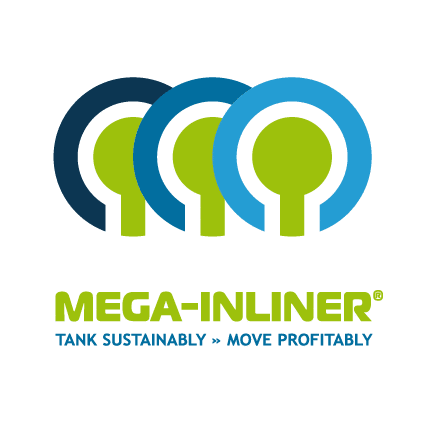
How ETS will affect the Transport & Logistics sector
In recent years, the urgent need to address climate change has led to the implementation of various environmental policies and regulations. One such mechanism gaining prominence is the European Emission Trading System (ETS). ETS is a market-based approach aimed at reducing greenhouse gas emissions. In this blog, we will explore how ETS is expected to influence the transport and logistics sector in the coming years and how you can benefit from it by converting to the Mega-Inliner® System.
Shifting Towards Low-Emission Technologies
With the introduction of ETS, transportation and logistics companies will be incentivized to transition from high-emission vehicles (Diesel Euro 6) to low-emission alternatives. This shift will lead to increased adoption of electric vehicles (EVs), hybrid vehicles, and other eco-friendly technologies. Companies will have a financial motivation to invest in green fleet solutions to reduce their carbon footprint and comply with emission targets.
Encouraging Sustainable Practices
ETS will encourage the implementation of sustainable practices within the transport and logistics sector. Companies will be motivated to optimize their supply chain operations, reducing fuel consumption and emissions. This may involve adopting efficient route planning, improving vehicle utilization, and utilizing alternative modes of transportation. By embracing sustainable practices such as the Mega-Inliner® System, companies can not only reduce their emissions but also achieve cost savings through improved operational efficiency. In other words, increase the Mt shipped per load per Km transported will decrease the KgCo2/Mt/Km. Moreover, with our Mega-Inliner® you no longer have to deal with previous loading restrictions and can load every conceivable non-hazardous liquid in sequence without the risk of cross-contamination. This results in simple and efficient route planning and massive cost savings.
Creating a Market for Emission Allowances
Under ETS, companies are allocated a certain number of emission allowances, which represent their permitted emissions. If a company exceeds its allowances, it must purchase additional allowances from companies with surplus emissions or invest in emission reduction projects. This creates a market for emission allowances, where companies can trade their allowances to optimize their emissions profile. In the transport and logistics sector, companies with lower emissions can potentially sell their surplus allowances, providing an additional revenue stream. By maximizing the payload Mt/Km by switching to bulk if it is not already and at the same time switching to the Mega-Inliner® System, your business will have lower emissions by eliminating empty miles or the need for expensive and environmentally unfriendly cleaning cycles. Therefore, it is possible to sell surplus allowances to generate an additional revenue stream, in addition to the cost savings from efficient route planning and the elimination of cleaning costs.
Impact on Freight Costs
The implementation of ETS is likely to result in an increase in freight costs within the transport and logistics sector. Companies that fail to comply with emission reduction targets will need to purchase additional allowances or invest in emission reduction projects. These additional costs may be passed on to customers, leading to a potential rise in transportation costs. However, it is important to note that these increased costs can be mitigated by adopting sustainable practices and investing in low-emission technologies, which can lead to long-term operational savings. By shipping with Mega-Inliner you are able to ship 25.000L product within 1 TEU. Highest efficiency per TEU.
Green Reputation and Competitive Advantage
In a world increasingly conscious of sustainability, companies that proactively embrace emission reduction measures can gain a competitive advantage. By effectively managing their emissions and demonstrating commitment to environmental responsibility, transport and logistics companies can enhance their brand image and appeal to environmentally conscious customers. A strong green reputation can differentiate companies in a crowded market, attracting new customers and fostering long-term loyalty.
Conclusion
As Emission Trading Systems gain traction worldwide, the transport and logistics sector will experience significant changes in the coming years. The transition to low-emission technologies, adoption of sustainable practices, and the creation of a market for emission allowances will shape the industry’s landscape. While the implementation of ETS may introduce additional costs, it also presents opportunities for companies to optimize operations, improve efficiency, and gain a competitive edge through a strong commitment to sustainability. Embracing these changes will not only benefit the environment but also position your companies for long-term success in a rapidly evolving global marketplace. Besides being a technological solution for high product safety, Co2 savings and cost reduction, Mega-Inliner also delivers a higher degree of load optimization, compared to conventional systems such as a flexitank. Ship 25,000L in a TEU, bottle close to market to generate even higher profits. If you would like more information on the application of the Mega-Inliner® System to transport your product, please click here.
Interested in saving Co2 and winning costs for your organisation? Get in touch now, convert to the Mega-Inliner® System and start becoming sustainable right away. Please contact us cla@mega-inliner.com or call +31 6 53 59 39 49

